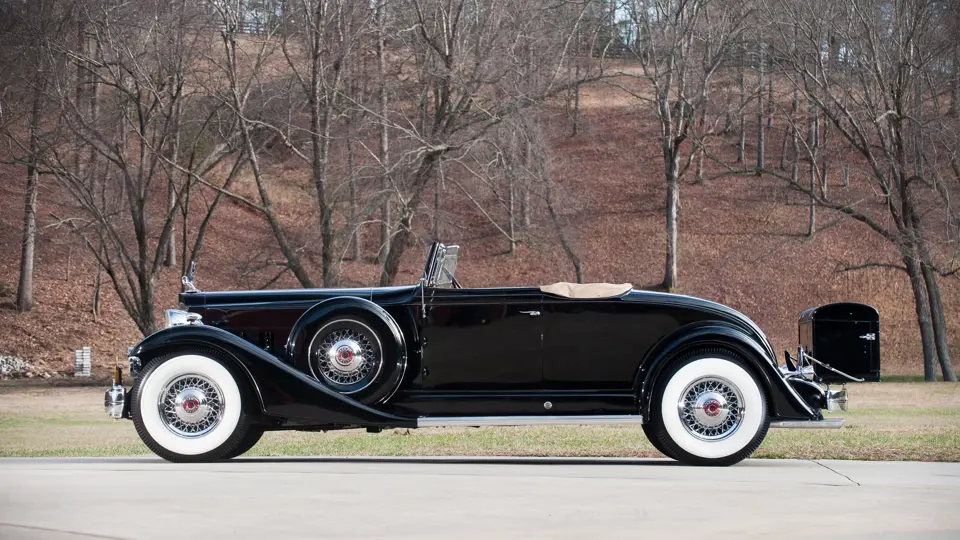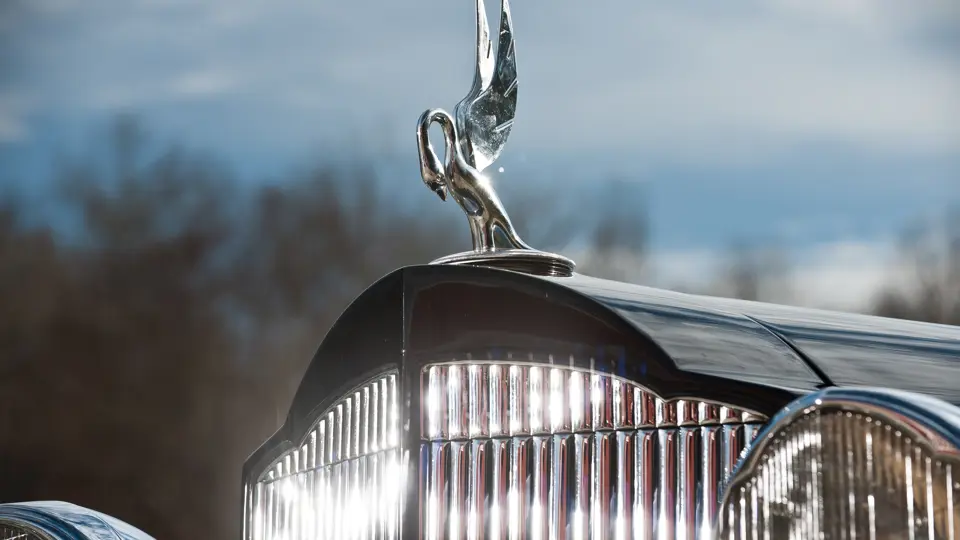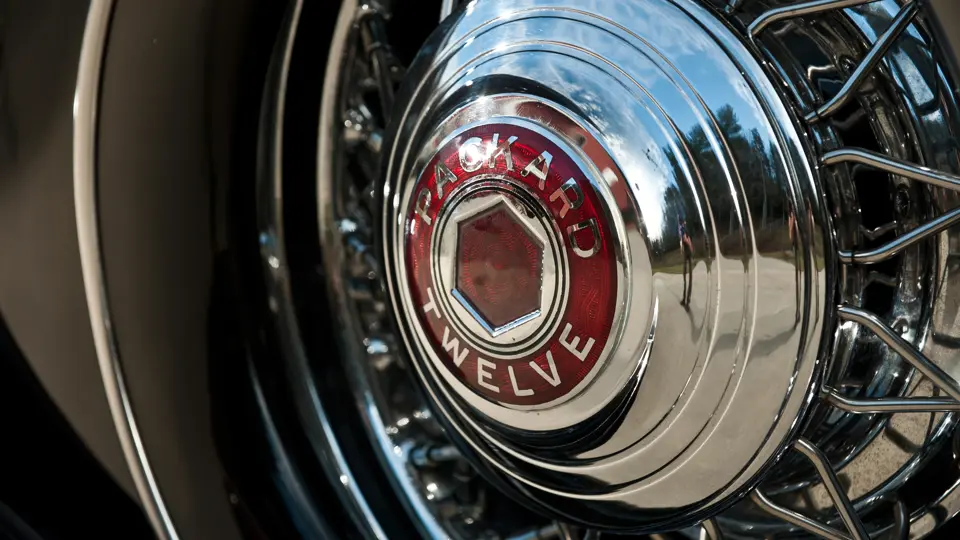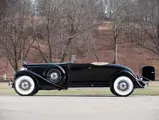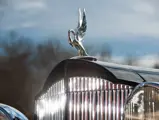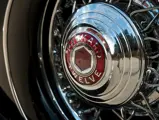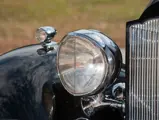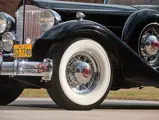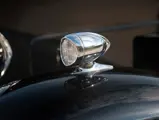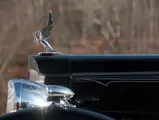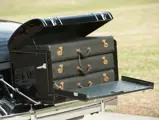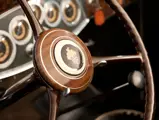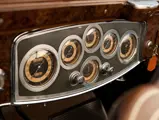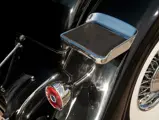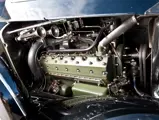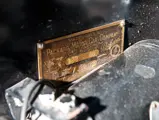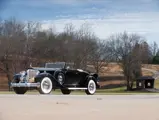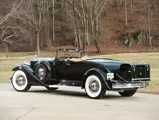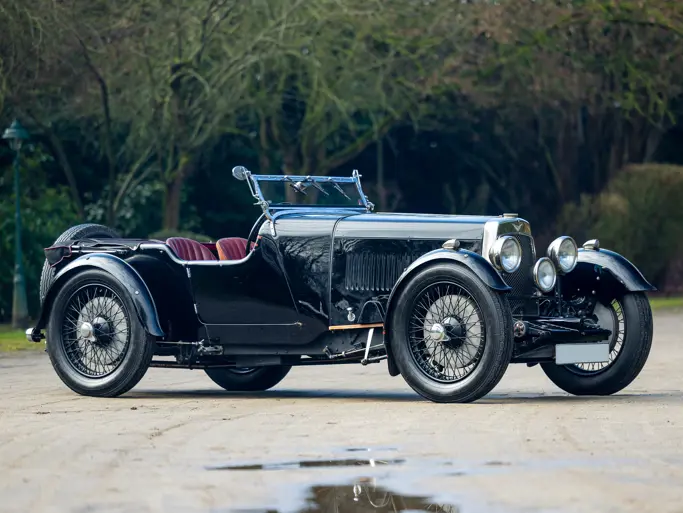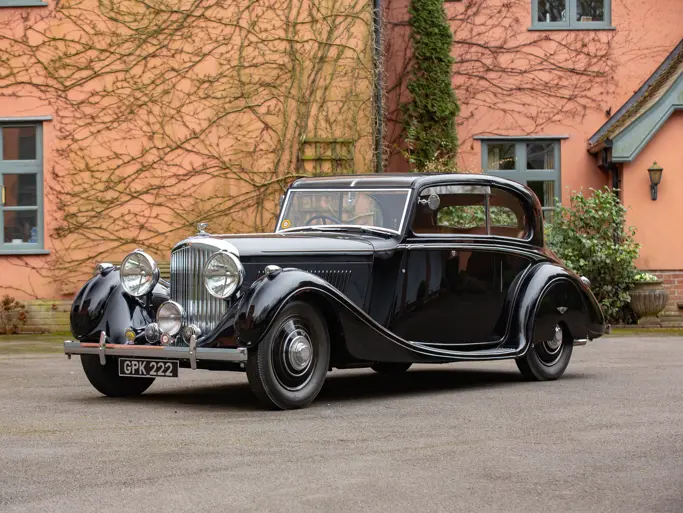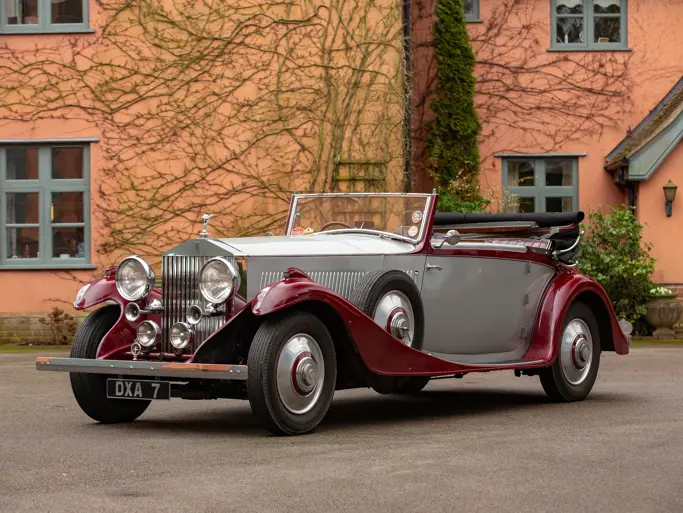Tenth Series. Model 1005, Style 639. 160 bhp, 445 cu. in. V-12 engine, three-speed selective synchromesh manual transmission, solid front and rear axles with semi-elliptic leaf springs, and four-wheel mechanical drum brakes. Wheelbase: 142"
• Rare example, sold new in California
• Fascinating history
• Award-winner and multiple tour participant
For most classic-car enthusiasts and collectors, Packard’s majestic Twelve of the 1930s requires little, if any, introduction and represents the ultimate expression of the marque’s premier “Senior” models and one of the ultimate achievements of the Classic Era. While the Twelve was offered with a dizzying array of body styles throughout its run, one of the rarest and most desirable Twelves combined the Model 1005 chassis with sporting yet elegant Style 639 2/4-Passenger Coupe Roadster bodywork.
This wonderful example carries a particularly fascinating history, having been sold new through Earle C. Anthony, the sole California Packard distributor from 1915 to 1958 that handled about one in every seven Packard automobiles ever sold. Its first owner, Los Angeles Deputy District Attorney David Clark, was infamous for having been indicted for the 1931 killing of a journalist and another man. The trial was sensational, and Mr. Clark was ultimately acquitted. His high-profile attorney, Mr. W.I. Gilbert, Sr., had a star-studded clientele including James Cagney and Kay Francis. For unknown reasons, the car became the property of Mr. Gilbert in 1935. In late-November 1940, Mr. Gilbert passed away, and in April 1941 the Twelve was sold by Mr. Gilbert’s widow for $175 to a young Albert J. Dunkel, who lived next door and was spellbound by the Packard at first sight.
However, just two years later, Mr. Dunkel and his bride-to-be elected to sell the Twelve in order to purchase a 1936 Cadillac Series 60 Sedan. Nonetheless, the Packard never left Mr. Dunkel’s mind, and its chassis number was etched in his memory. The car remained in California until Mr. Dunkel located it once more through his local California DMV office during the late-1940s, and he found that it was still road-licensed and owned by one Mr. Winden, a Word War I veteran with a mining clam who lived in the San Gabriel mountains some 70 miles from Los Angeles. Mr. Winden reportedly used the Packard to haul rocks and ore samples in the car’s rumble seat. Mr. Dunkel made repeated attempts to buy the car but was rebuffed each time by Mr. Winden, who claimed to have received offers of $1,000 for the engine alone. Mr. Dunkel backed off, but he maintained contact with an elderly forest ranger, who kept him informed of the car and its status with Mr. Winden.
A setback in Mr. Dunkel’s quest for “his” Packard occurred in 1953, when the forest ranger called to advise that Mr. Winden sold the Twelve for just $100 to an 18-year-old geology enthusiast named Doug Hamilton, who lived with his parents in nearby Glendora, California. Undaunted, Mr. Dunkel befriended Mr. Hamilton, who dismantled the Twelve for safekeeping and in preparation for its planned restoration. However, naval service and several years of college prevented Mr. Hamilton from restoring the car. Finally, in 1967, Doug Hamilton’s parents contacted Mr. Dunkel, and under parental pressure, a deal was made; by mid-January 1968, the car was once again Mr. Dunkel’s. Under Mr. Dunkel, the Twelve was restored to its former glory, with the engine rebuilt by renowned marque specialist E.C. Last of California. The restoration process was aided by the fact that the car was extremely complete. In 1994, it completed the CCCA Pacific Northwest CARavan.
The current owner acquired the Twelve soon after in 1995, and under his care it won the AACA’s Thomas McKean Tour Trophy in 2001, awarded at the annual banquet in Philadelphia, Pennsylvania. AACA First Junior and Senior Awards followed in 2002 and 2010 respectively, and as a proven touring car, the Twelve has also completed a trio of AACA Glidden Tour events in Georgia, Michigan and Virginia.




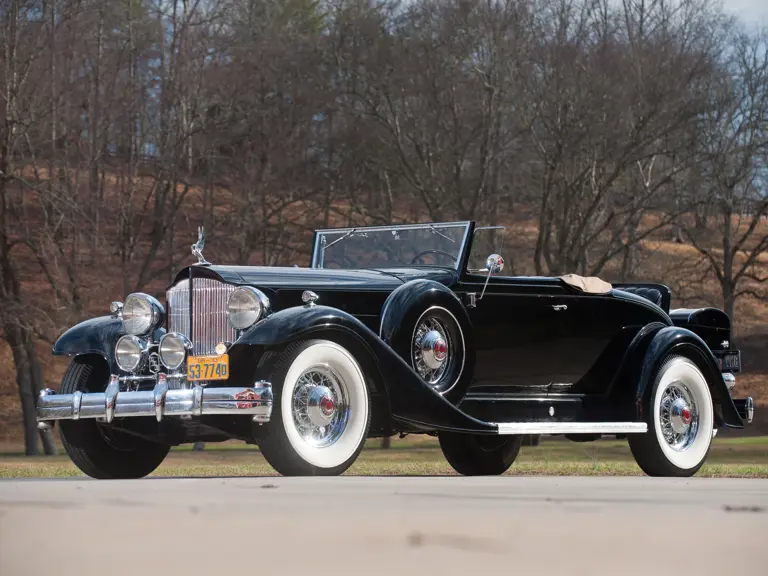
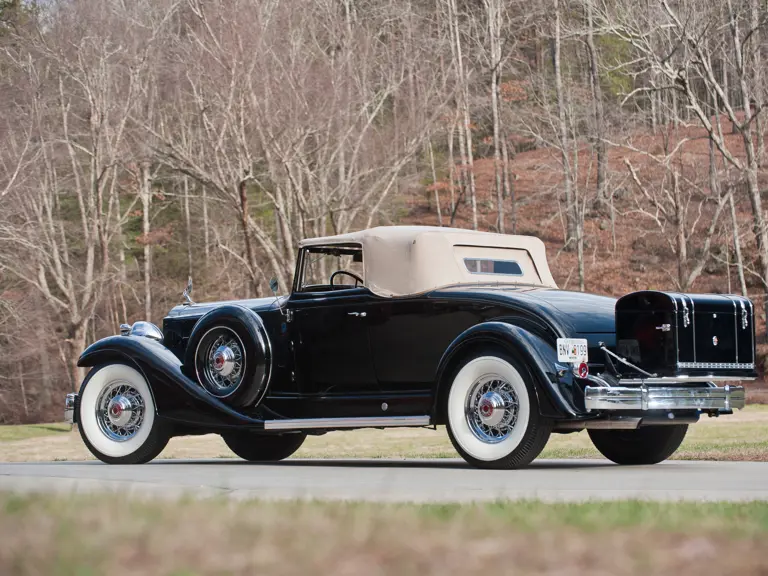
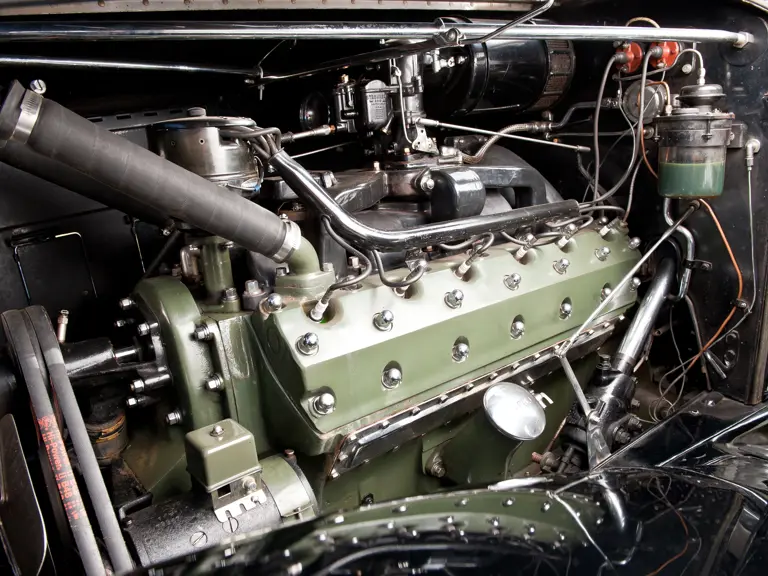
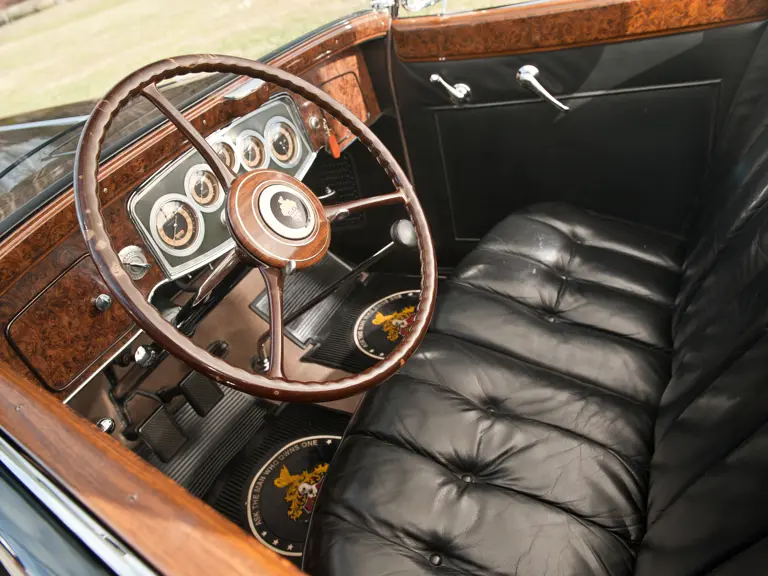
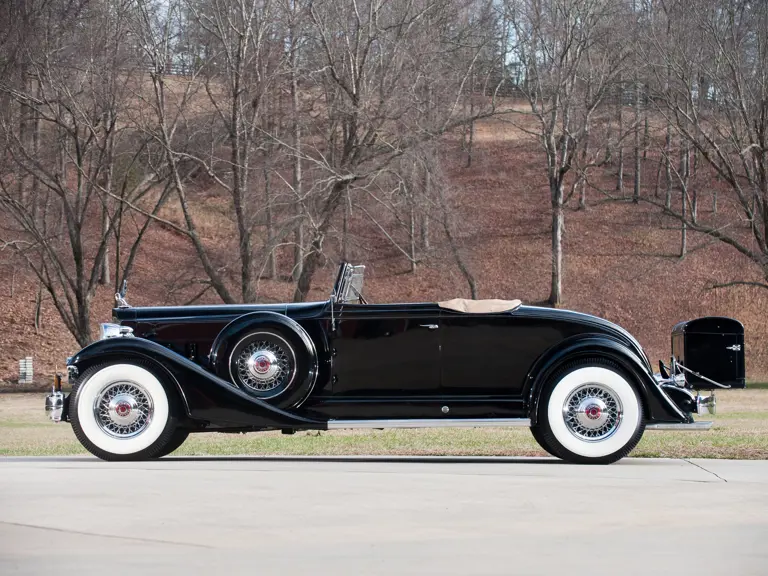
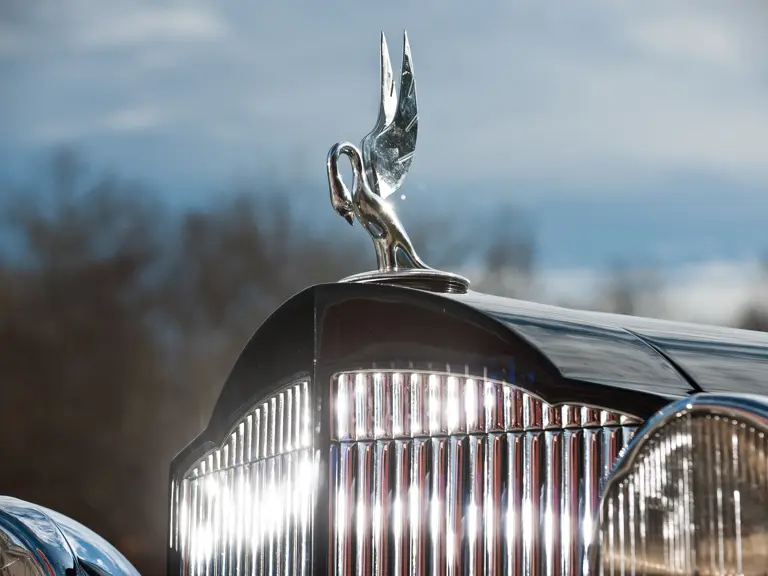
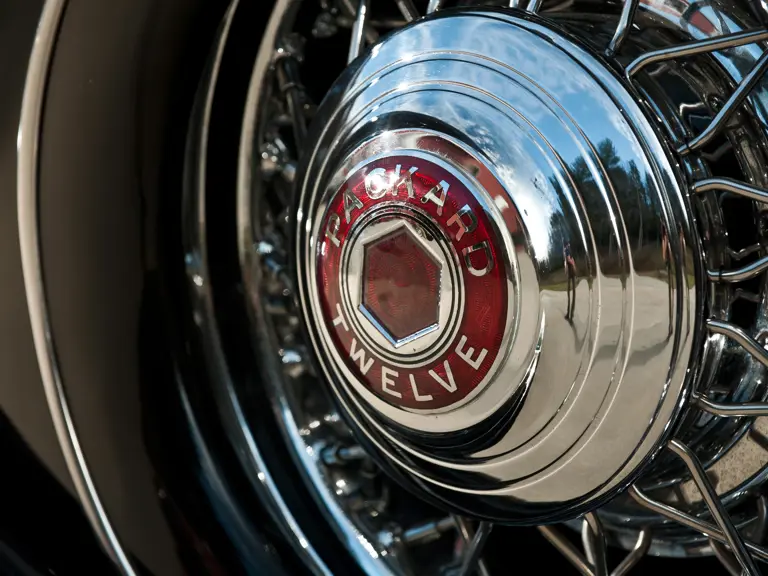
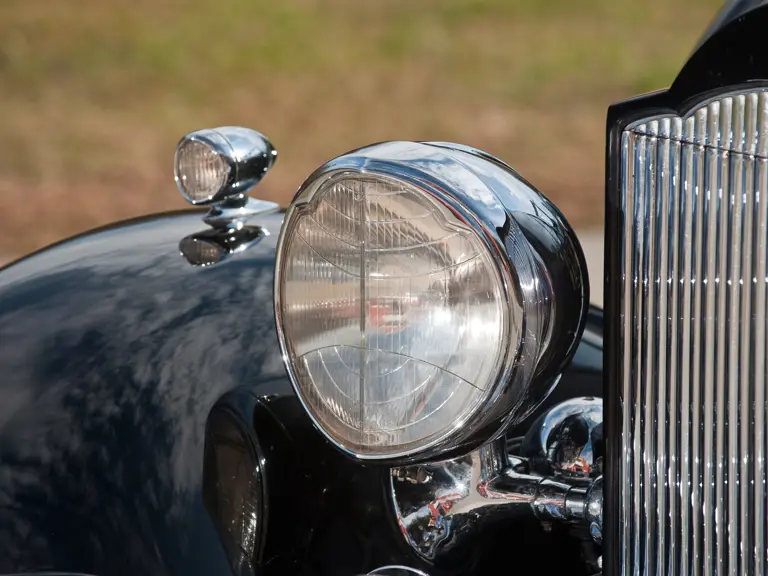
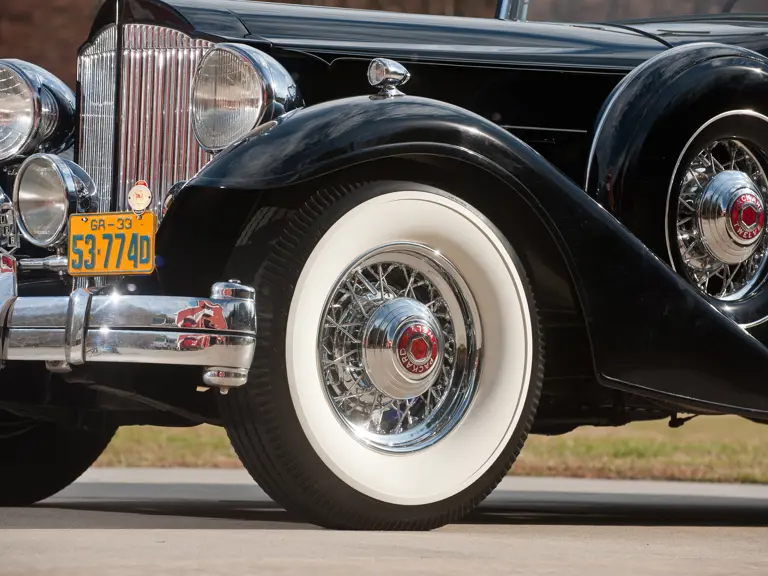
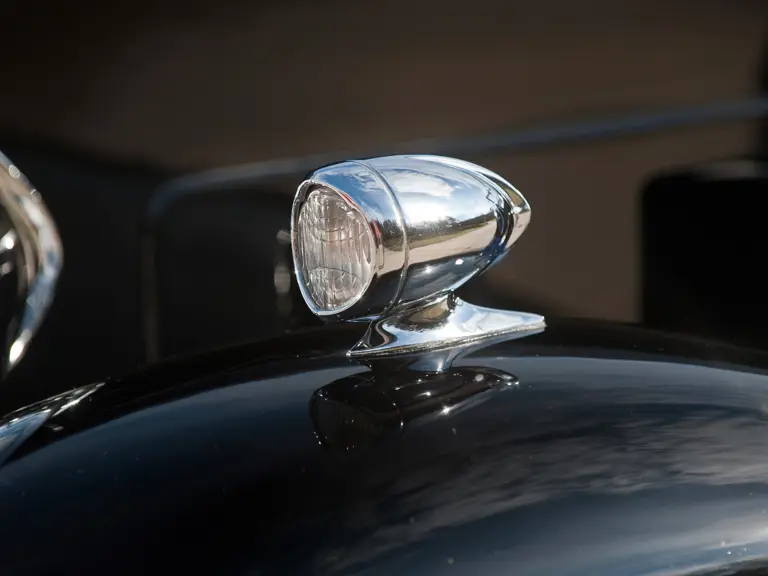
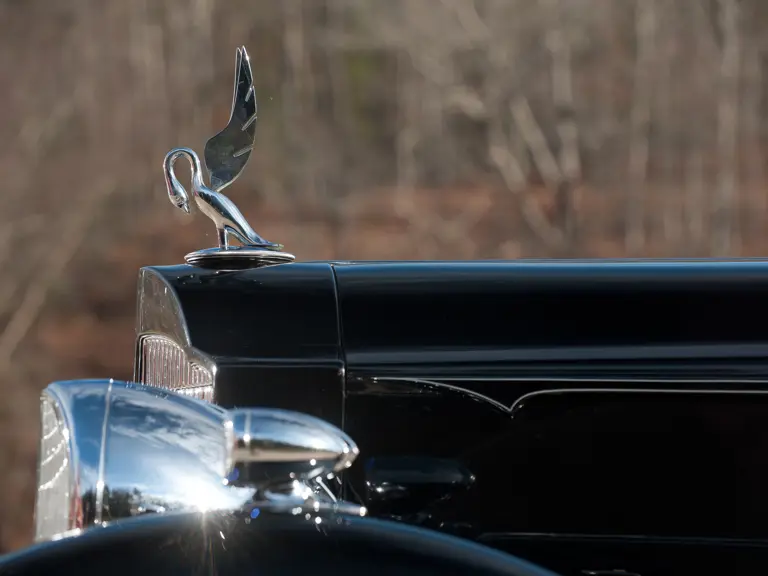
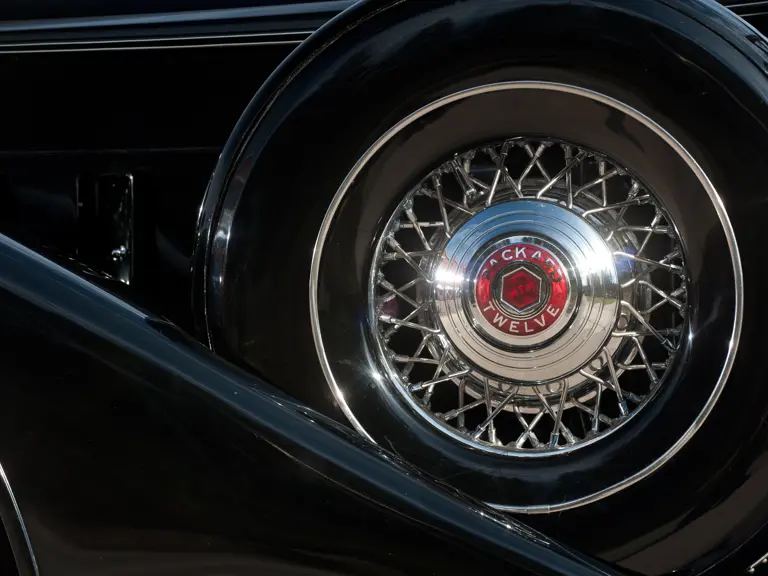
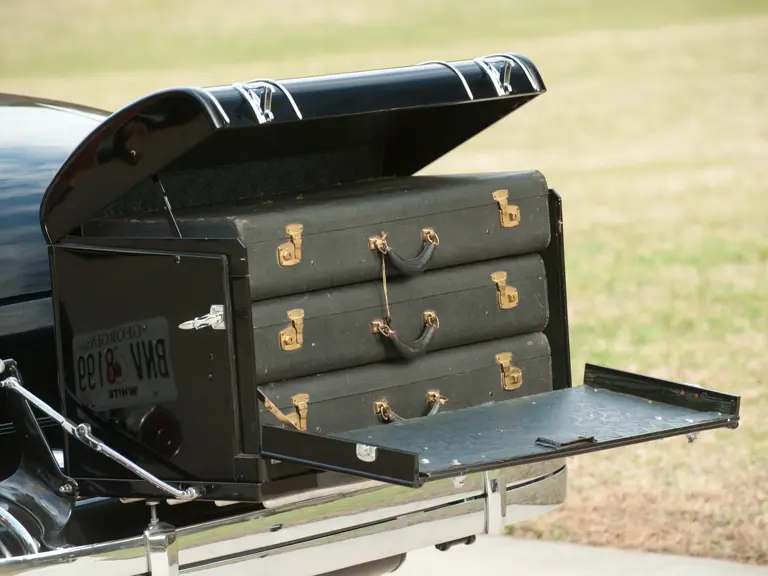
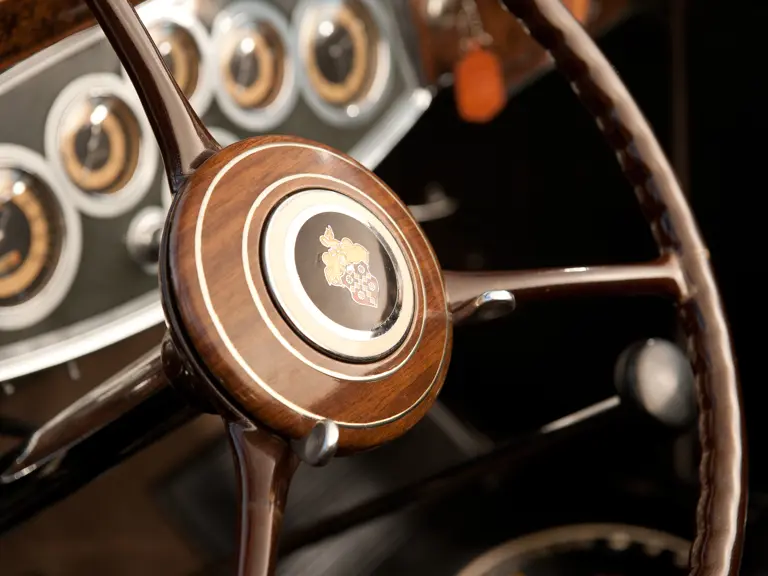
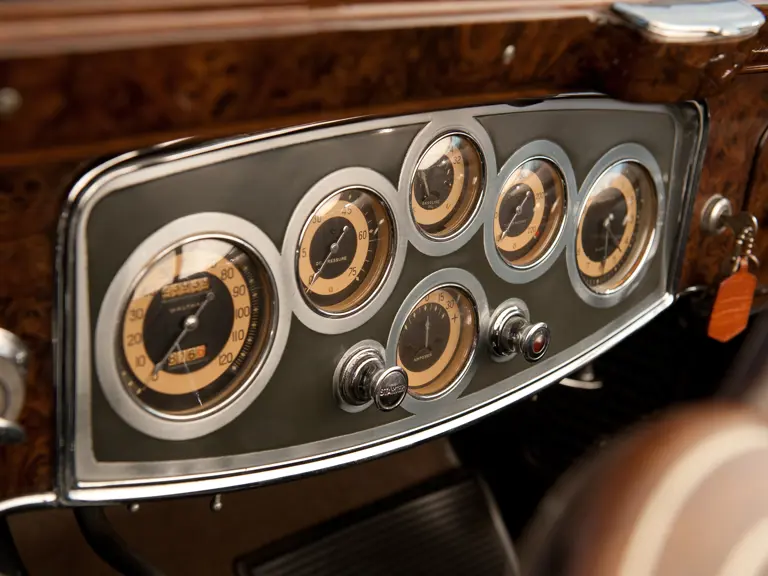
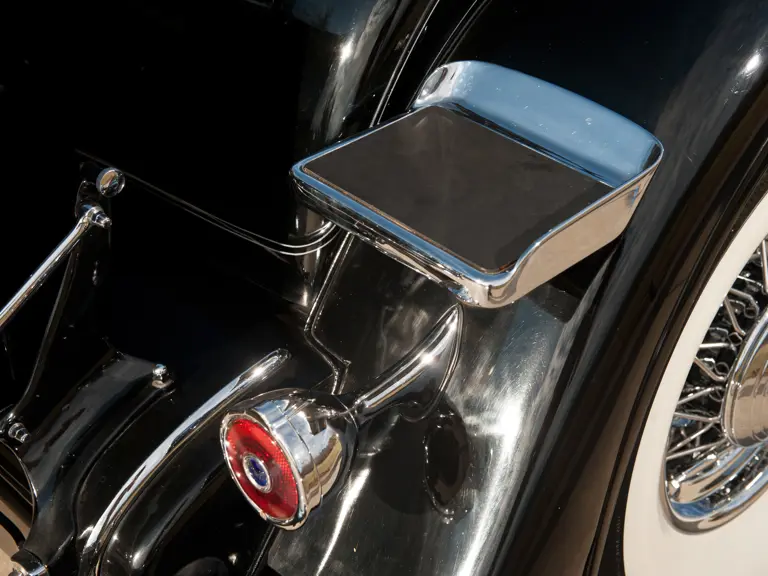
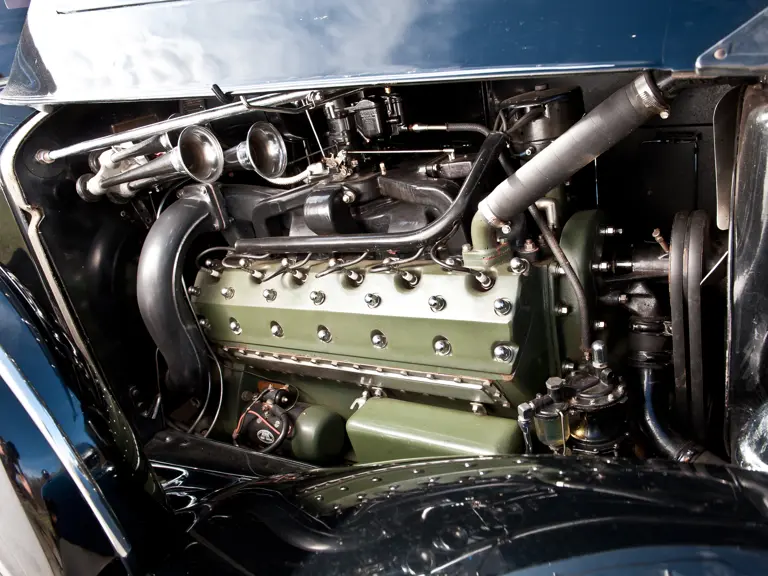
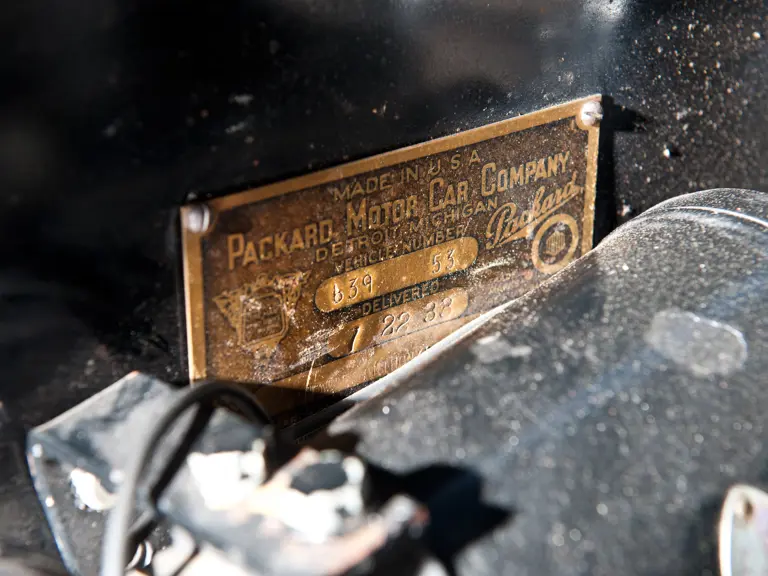
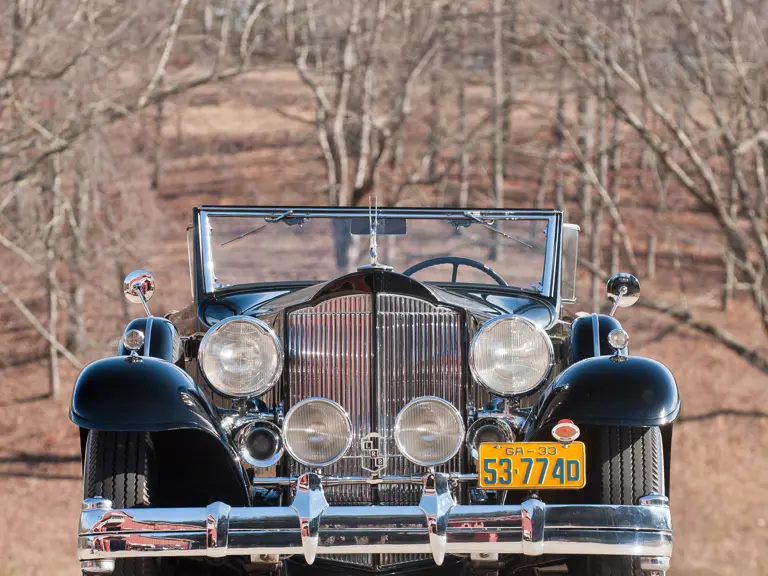
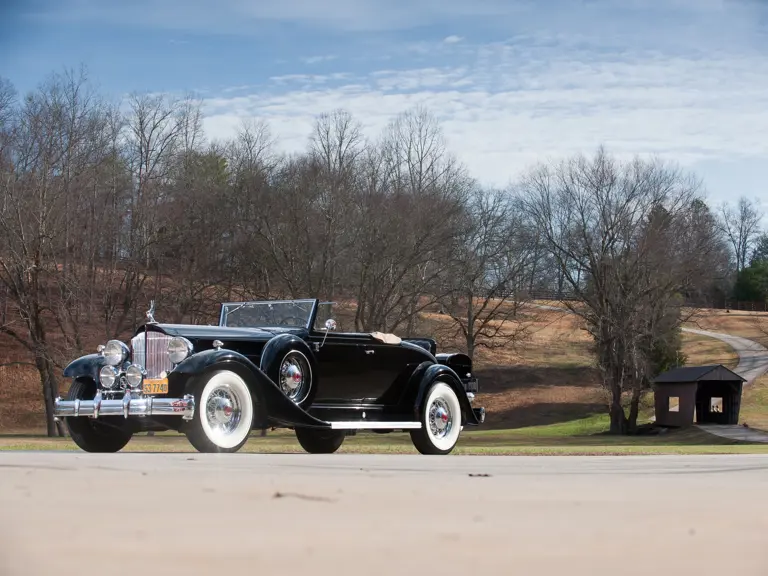
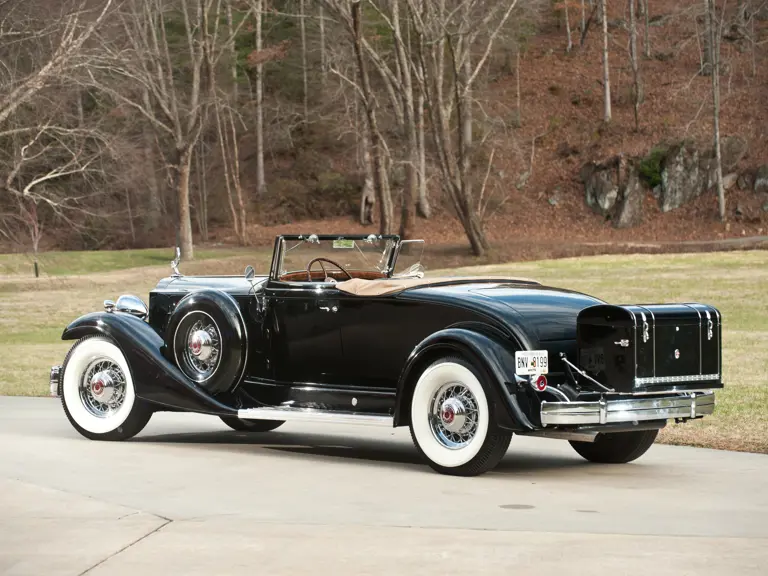
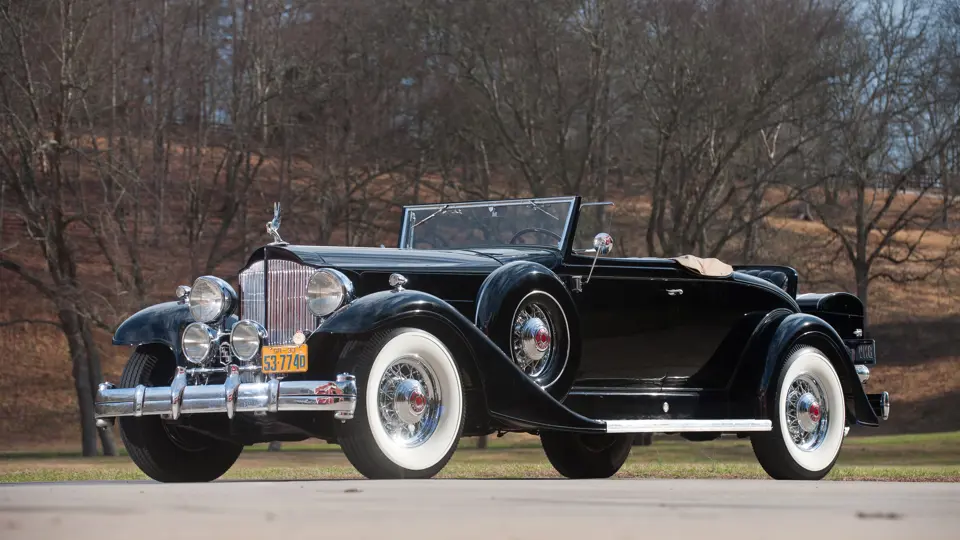
 | Amelia Island, Florida
| Amelia Island, Florida
